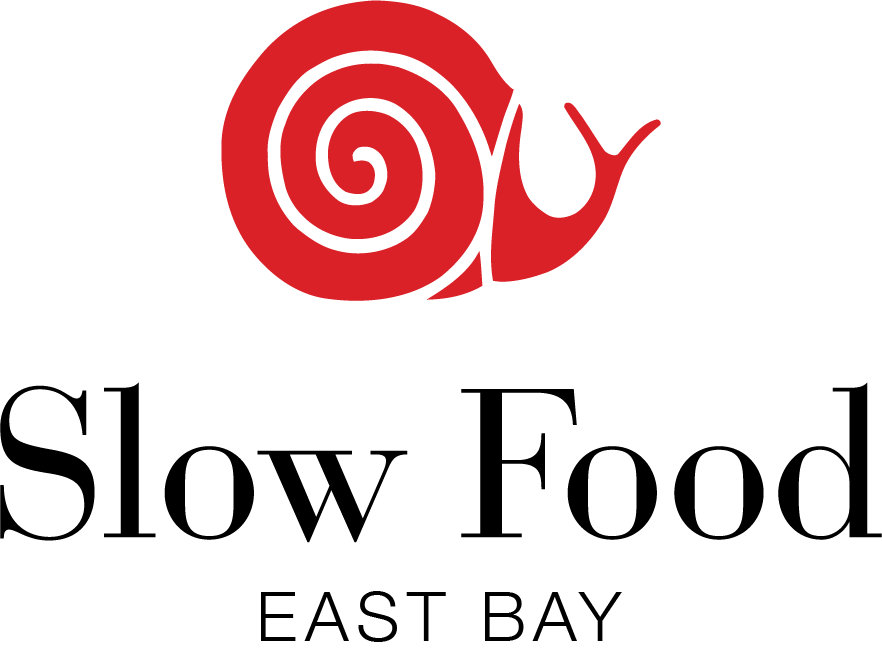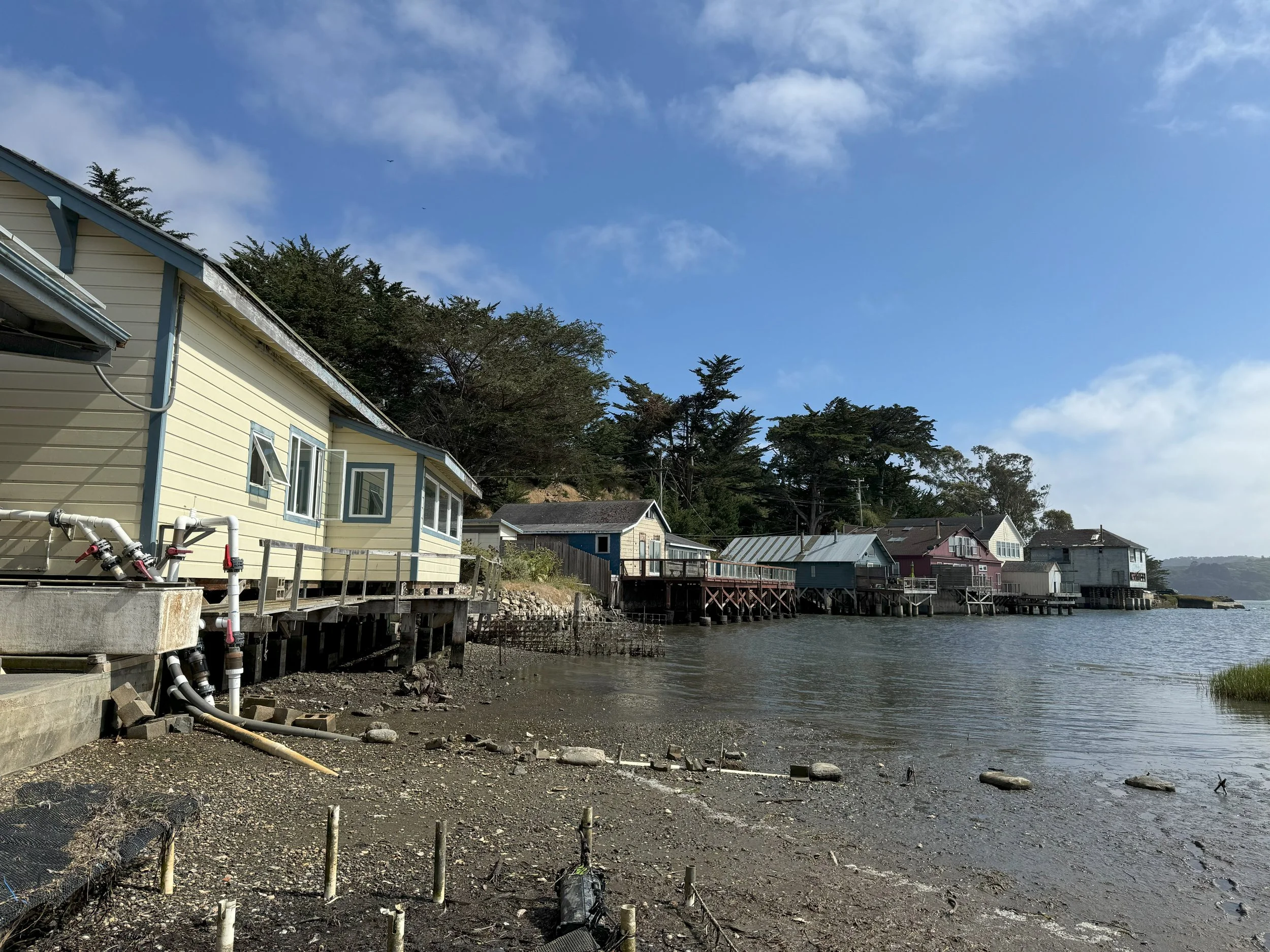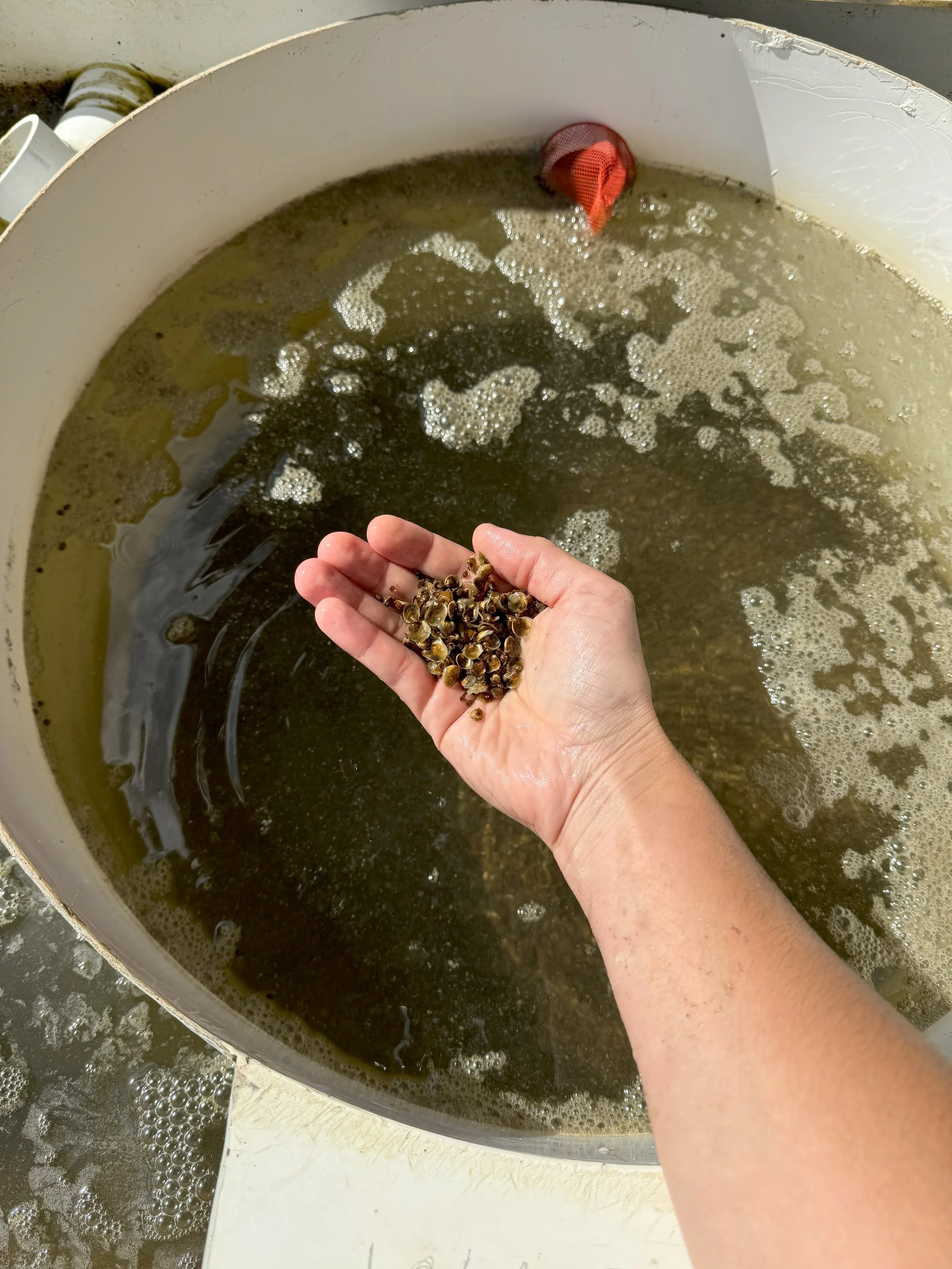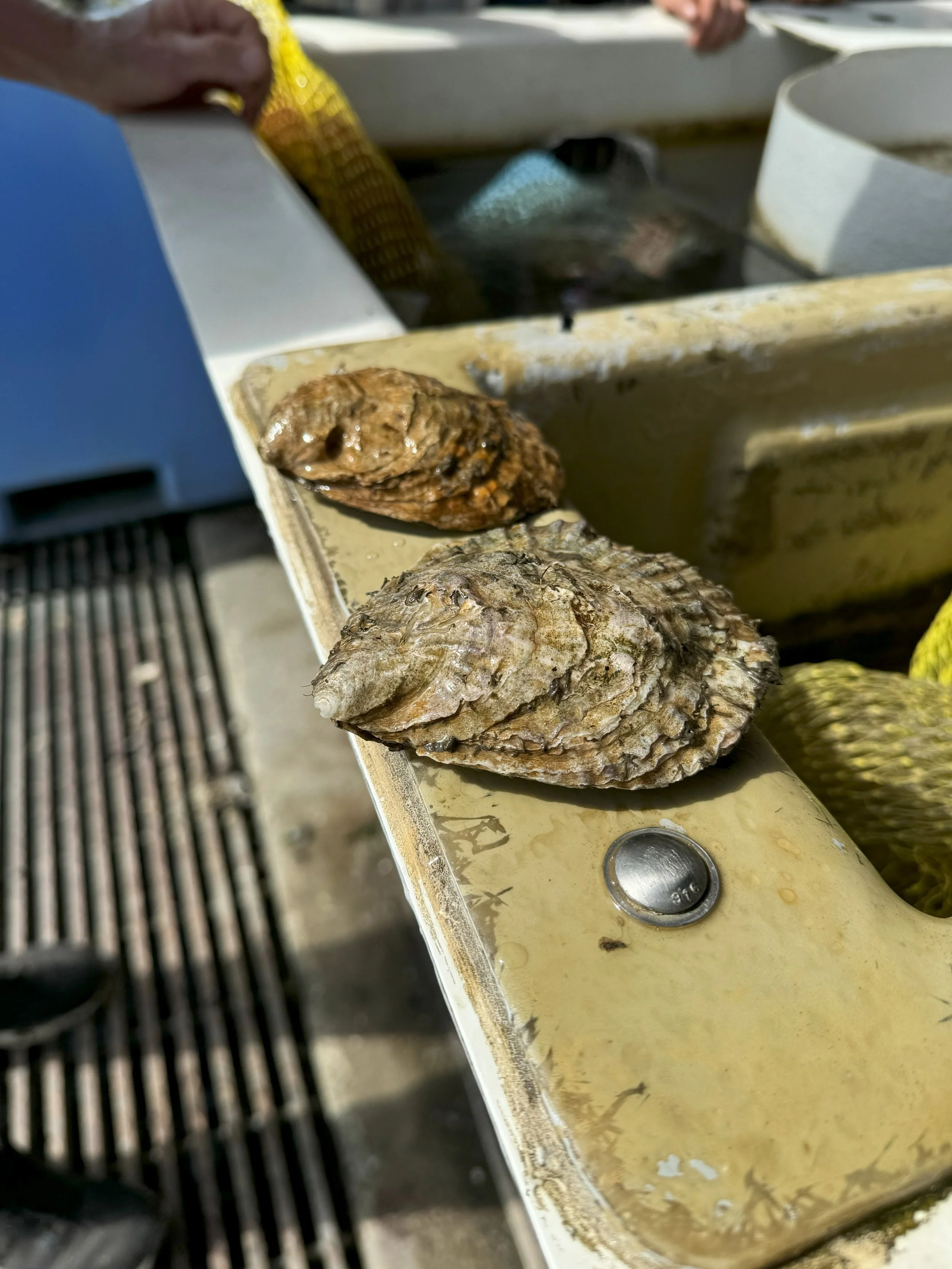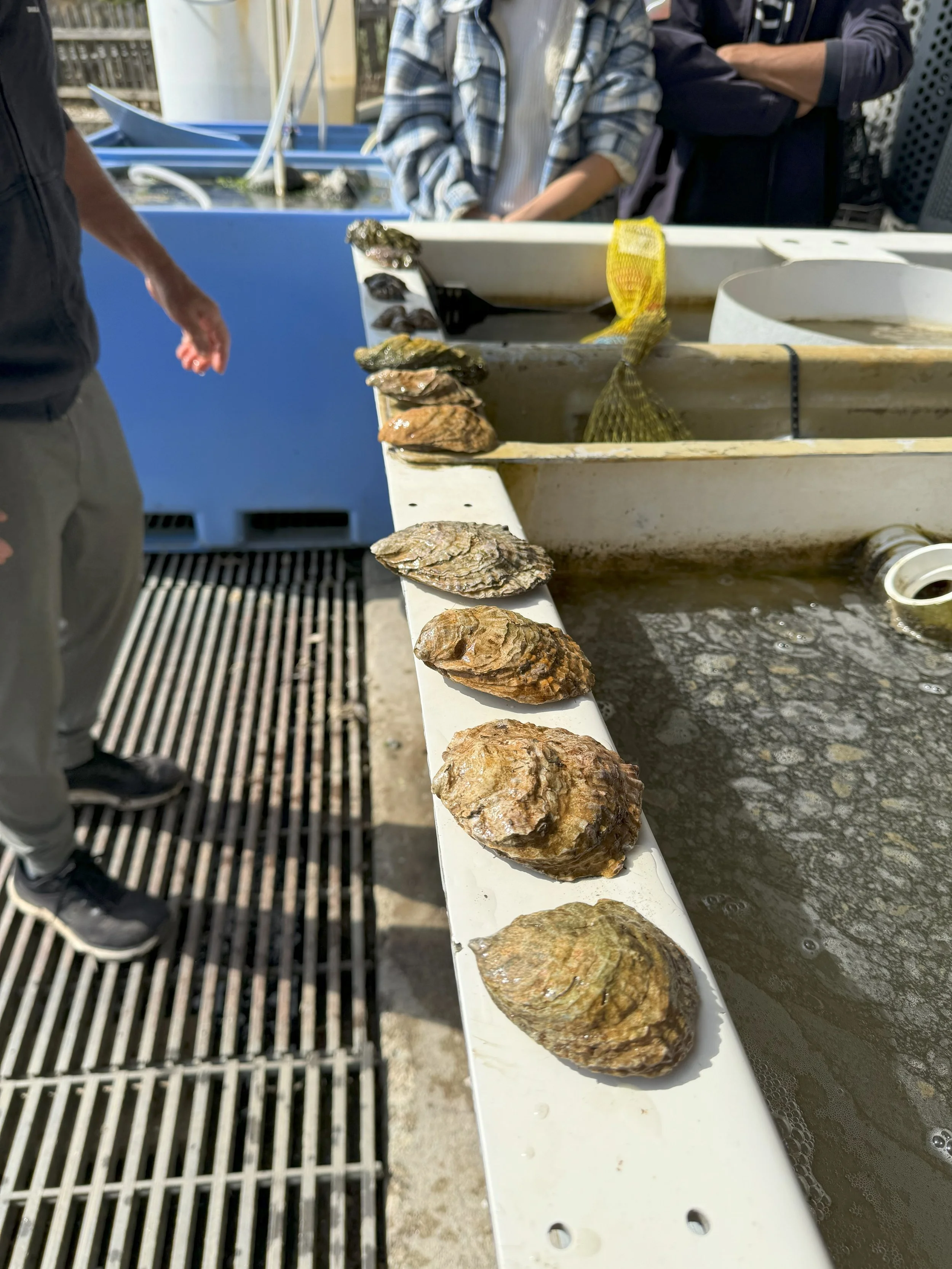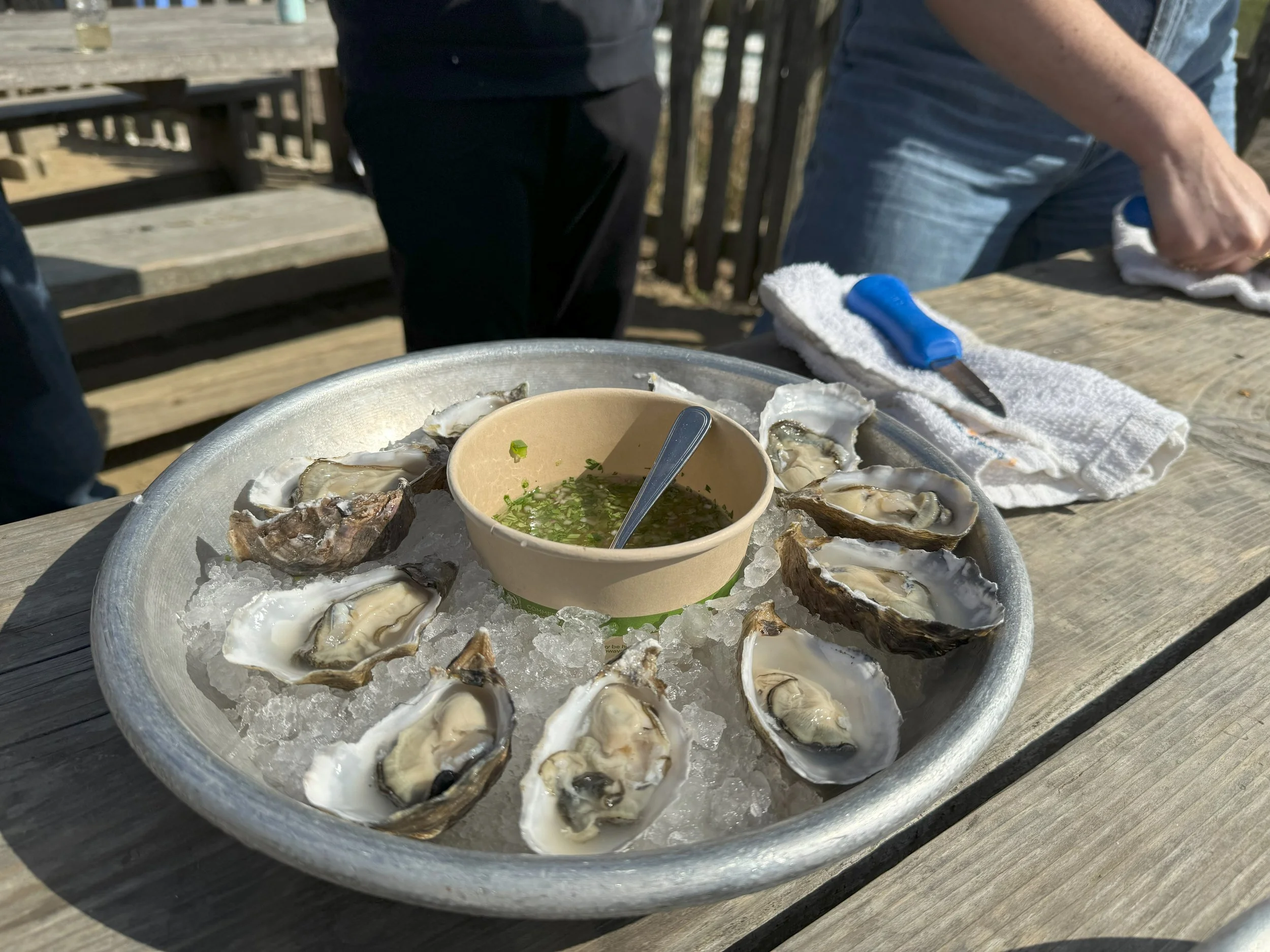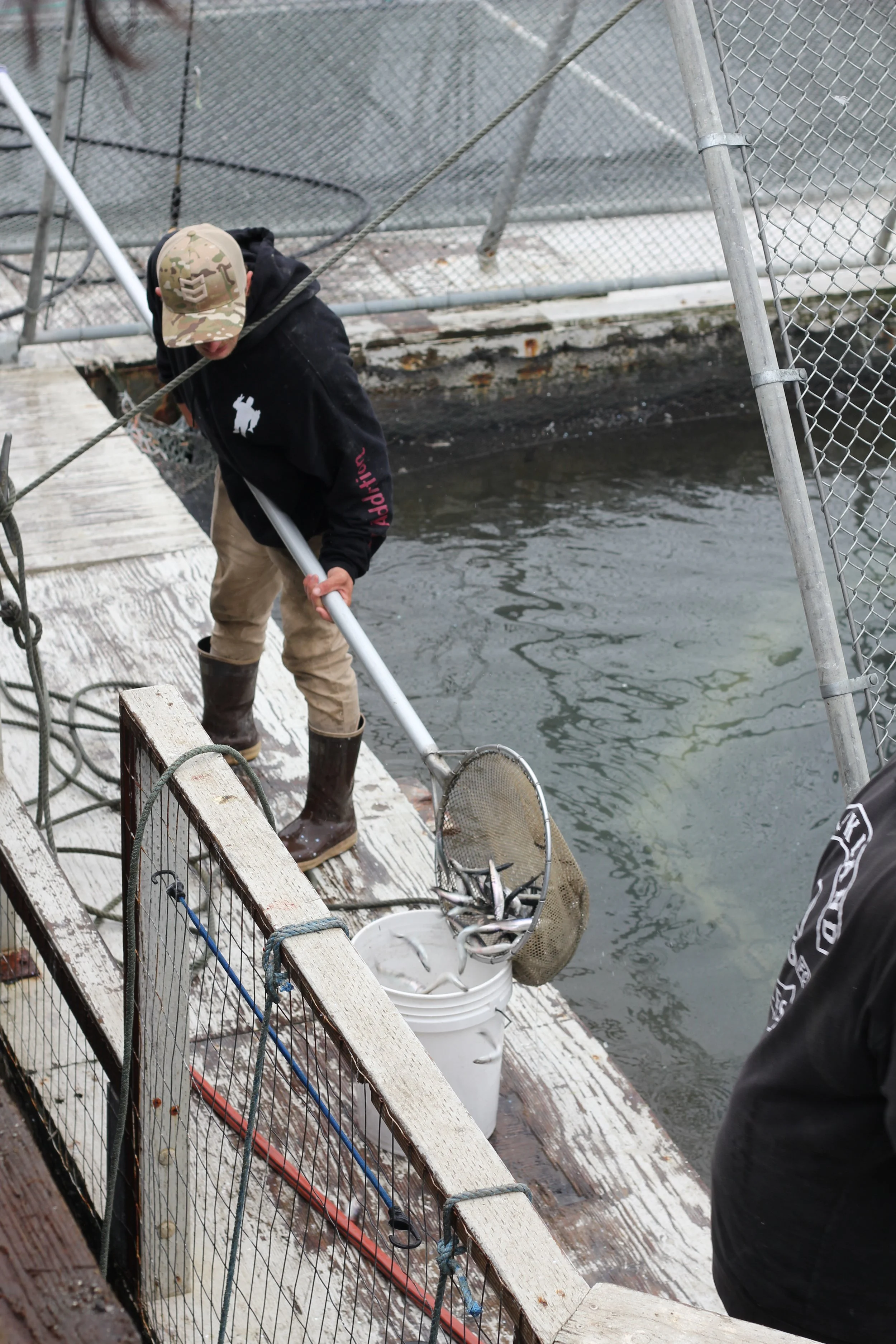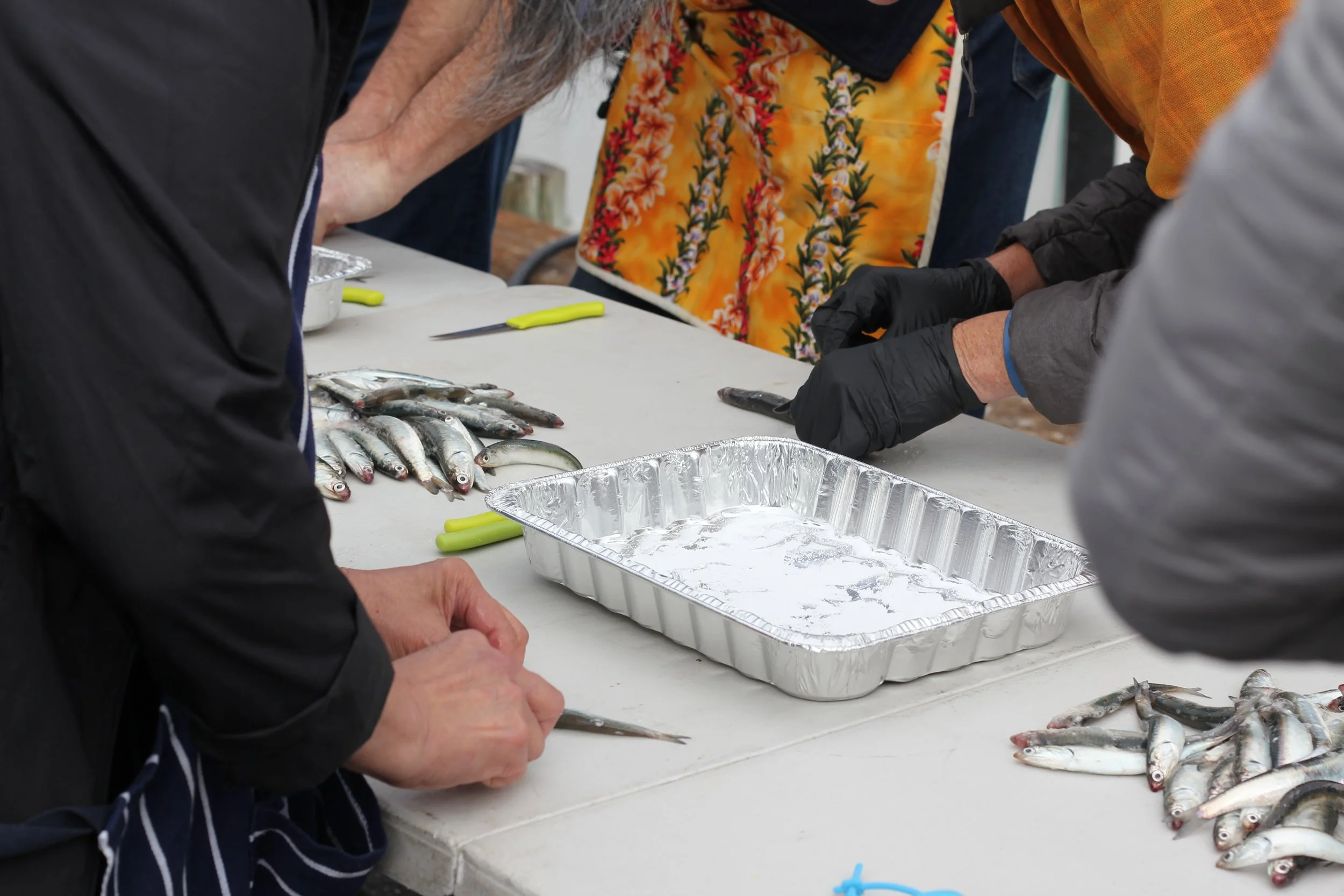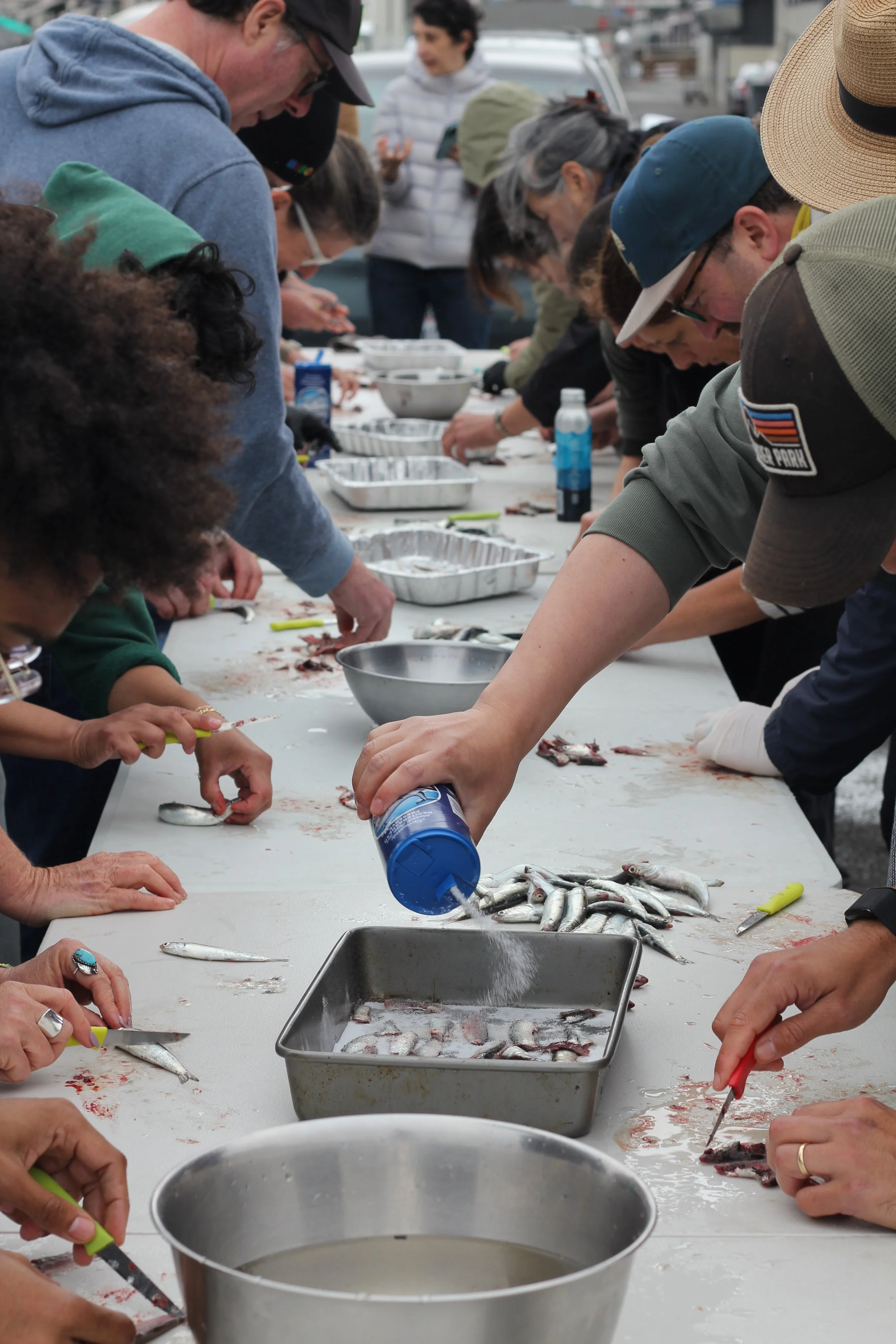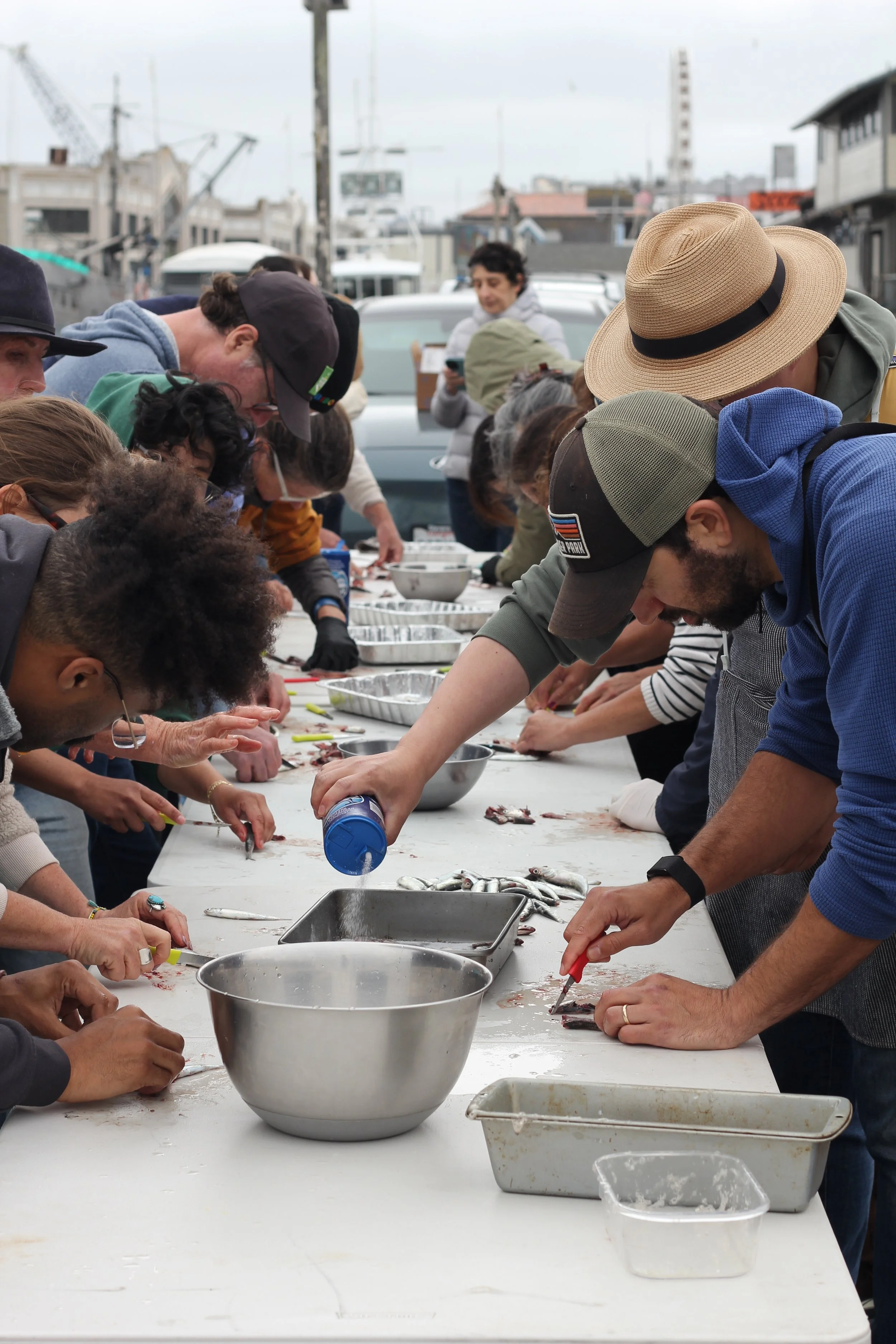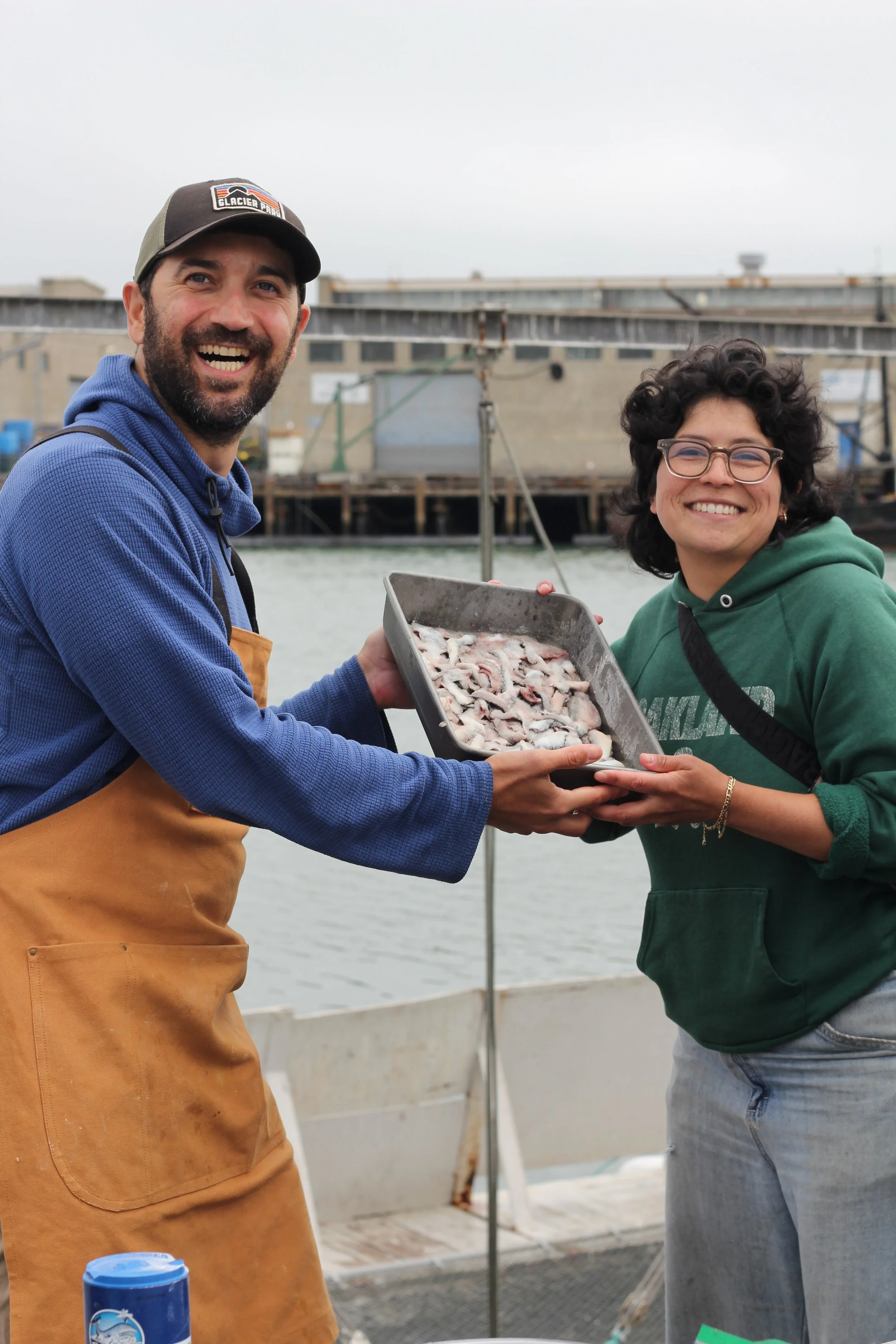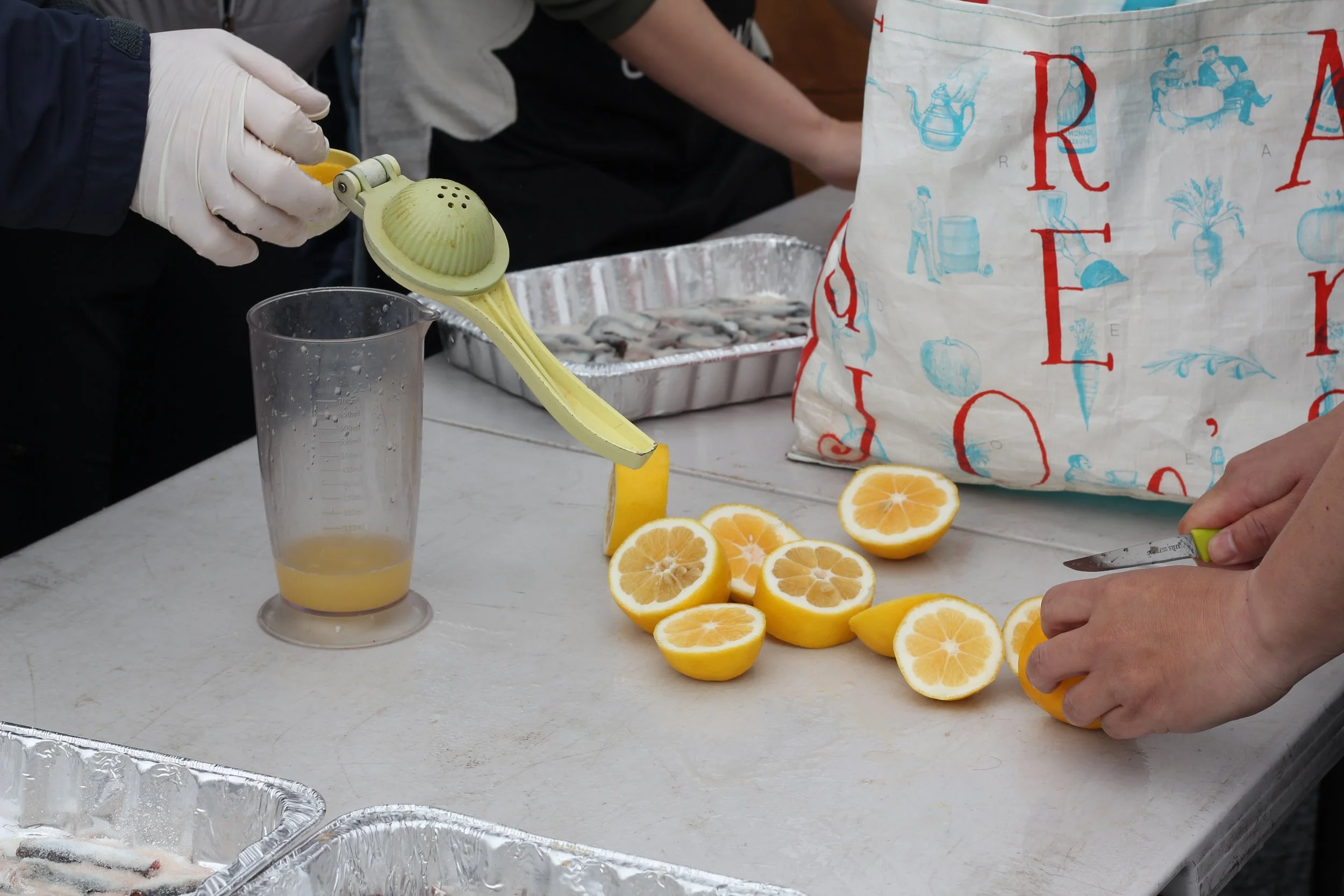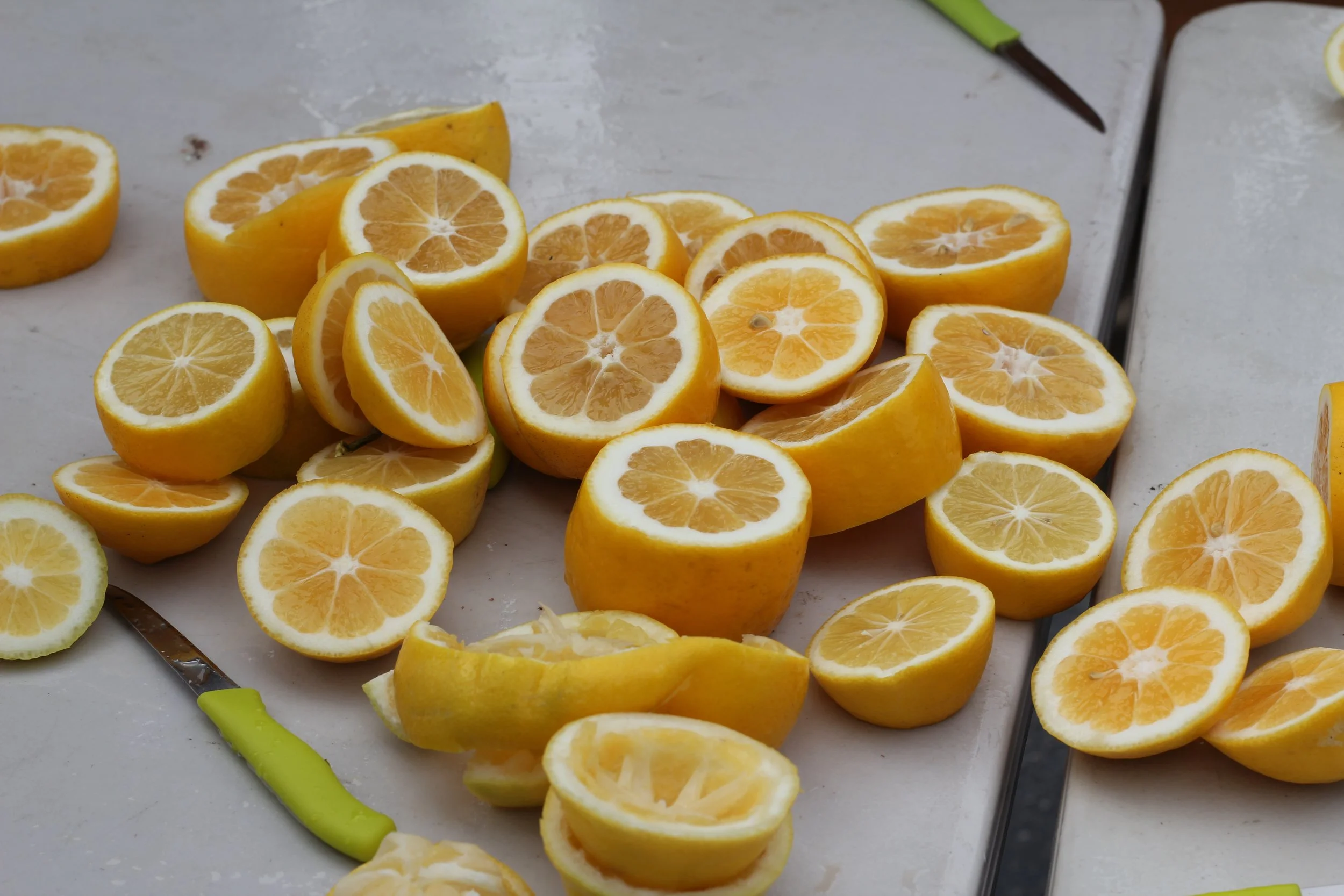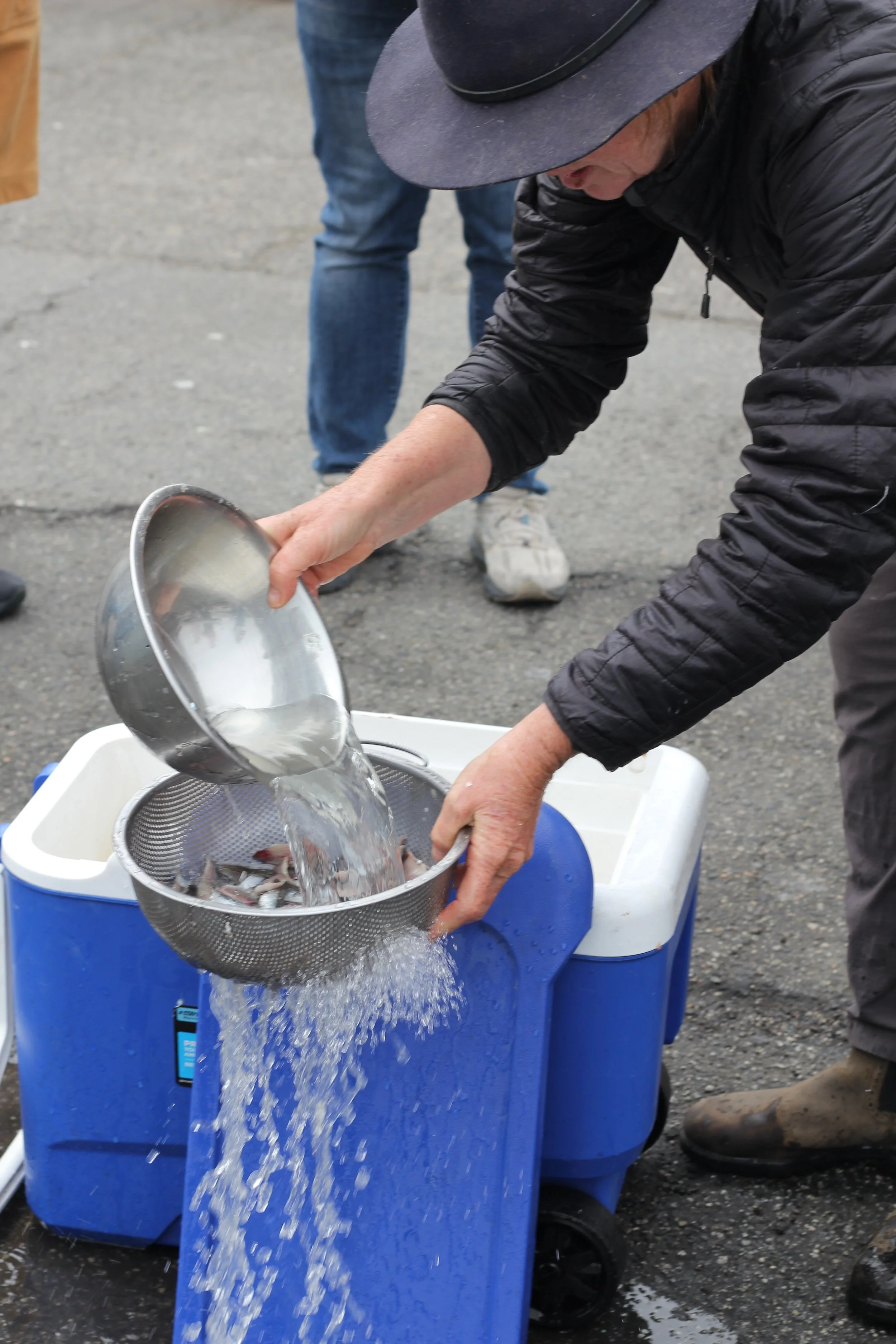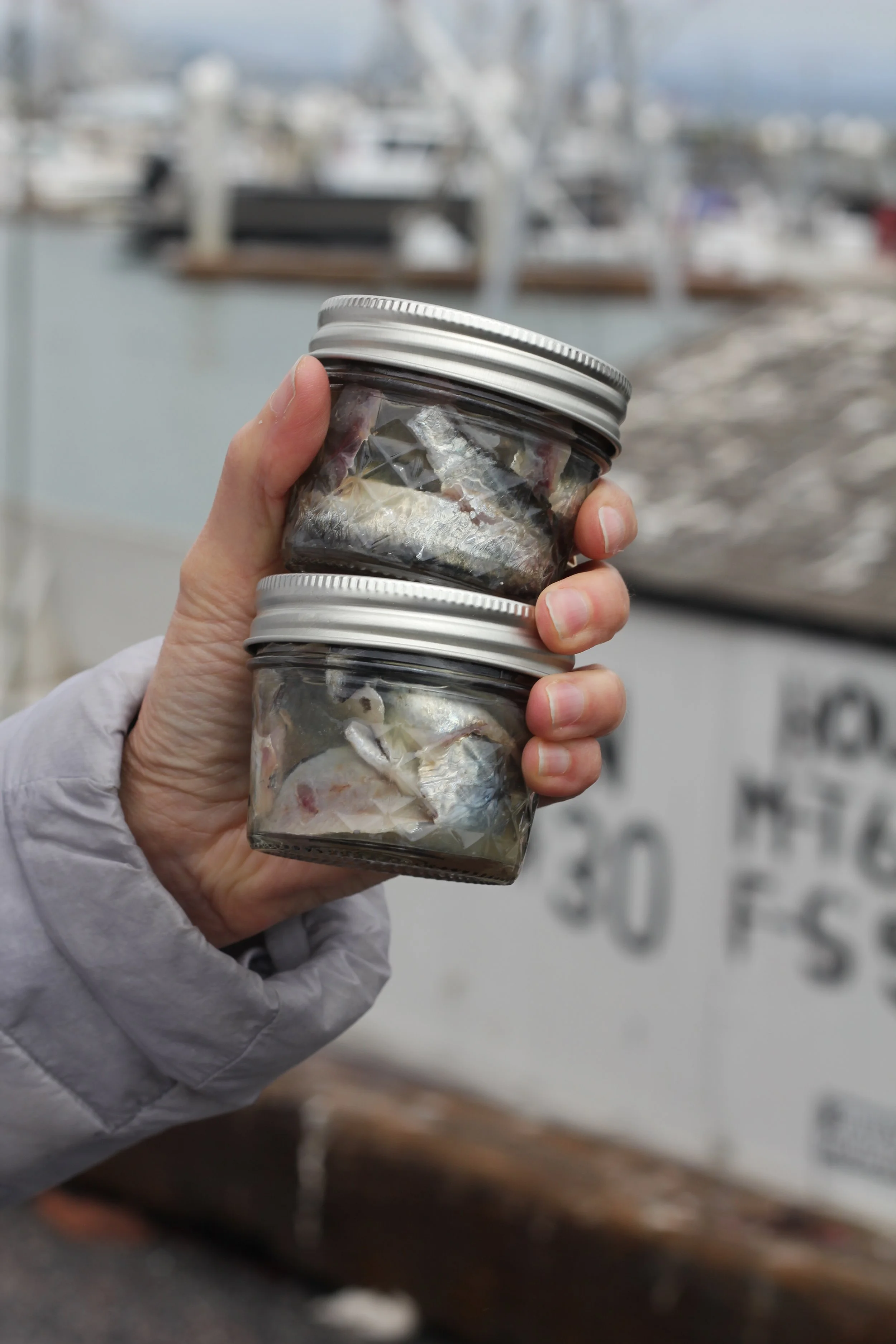Slow Fish
Overview
In 2025, Slow Food East Bay turned its attention to the foodways coursing through our waterways: What do we know and not know about the fish on our dinner tables, the oysters on glistening on the half-shell at happy hour, or the unsung hero that is the seaweed winding around our sushi rolls? What are we eating, exactly, and where is it coming from? And what are we not eating – and why?
Water is central to the place we call home. This is the Bay Area. Yet we are strikingly disconnected from the seafood community. We wanted to understand what our blind spots are as consumers and contributors to the food culture, and what we know and don't know about our fish, crab, oysters, and other seafare that end up on our plates. Who are the people involved in the process? How do laws, regulations and seasonality affect what ends up on our plates, and how do we become aware of them?
A central tenant of the Slow Food ethos is to serve as “connectors” – so facilitating an ongoing discussion via dinners, workshops and more was the perfect role for Slow Food East Bay to take on. We’ve had a deeply engaging and resonant year-plus of bridging the gap between producers, experts, enthusiasts and consumers in the world of seafood, and the work continues! Read on for details of our previous projects, and check out the “Our Events” page for upcoming fishy opportunities. And if you have ideas on what we should do, or would like to collaborate with us on a Slow Fish-oriented event or project, we would love to hear from you! Just reach out over email at slowfoodeastbay@gmail.com, or direct message us at our Instagram page.
Know Fish
The first event in our Slow Fish series took place in May of 2024 - our KNOW FISH Dinner®, hosted at 25 Lusk in San Francisco. KNOW FISH Dinners® are part of the Rising Tide program, a collaboration between Slow Food North America, Slow Food USA, and local Slow Food chapters (like Slow Food East Bay!). The Rising Tide program aims to bring more people into the conversation about why seafood with values matters, a mission very relevant to our Bay Area community.
Chef Matthew Dolan and his team crafted a four-course meal that featured locally-sourced, seasonal, sustainable fish in each dish. These were paired with local, sustainably-created wines, making for an unforgettable meal on its own — but the programming was where things really got interesting.
During the meal, guests heard directly from the harvesters and fishmongers who sourced their dishes: Sea Forager Kirk Lombard, TwoxSea’s Kenny Belov, and Hog Island Oysters’ Gary Fleener each shared stories of and insights about local fisheries, the challenges of climate change, unsustainable policies, and the consequences of cheap imports. Their message was clear: Our ocean systems are under strain, and it’s more important than ever to ask informed questions and support responsible seafood practices.
Guests also heard from Slow Fish North America Oversight Team members Kelly Collins-Geiser and Jacquelyn Ross, who hosted the evening. Jacquelyn is a member of Slow Food Turtle Island and has represented them at international gatherings, and she shared her Indigenous heritage and spoke about the fishing needs of local communities.
In the spirit of advocacy and action, 6% of each ticket sold was donated to Slow Fish North America, helping to support their work in promoting Good, Clean and Fair fish ecosystems.
This KNOW FISH Dinner® was a meaningful, invigorating start of our Slow Fish journey at SFEB. Thoughtful conversation, enthusiastic community, and delicious food — the trifecta!
Chef’s Camp
The Slow Fish Chef's Camp brought together a dynamic group of chefs, restaurateurs, fishmongers, seaforagers, and seafood advocates in August of 2024. Hosted in partnership with Slow Fish North America and Slow Food East Bay, the camp served as a powerful regional hub for advancing sustainable seafood practices.
As part of the Slow Fish Rising Tide series, the camp championed the Slow Fish ethos: sourcing seafood that is good, clean, and fair. Throughout the event, participants dove into meaningful conversations about strengthening relationships with local fishers, supporting responsible fishing communities, and helping diners understand where their seafood truly comes from.
Attendees found valuable opportunities to network, share knowledge, and build collaborations that could ripple through their restaurants and communities. Participants also got an exclusive, behind-the-scenes look at the world of charter fishing led by Captain Adam Sewall, and took a deep dive into the art and science of oyster farming at Hog Island Oyster with expert Gary Fleener.
The Slow Fish Chef's Camp reminds us how chefs are uniquely positioned to lead the charge toward a more sustainable food system. Through their choices, menus, and voices, they can inspire both diners and fellow industry professionals to care about the story behind every catch.
Anchovy Workshop
We celebrated California’s anchovy season in August of 2024 and 2025 with Maria Finn, author of Forage. Gather. Feast and founder of Flora & Fungi Adventures with a Slow Food East Bay version of the Anchovy Olympics. Tucked away behind Scoma’s in Pier 47, our group gathered at the water’s edge where scores of anchovies darted in open pens, ready to be scooped up for the day's activities.
Anchovies are an ecological beacon for our local waters and a means to strengthen our local fishing economy. Their current abundance signals ocean health. And by choosing small fish, we're opting to fill our plates with sustainable alternatives to larger farmed fish such as tuna, which requires twenty-two pounds of feed for just one pound of growth! Moreover, anchovy’s low position in the food chain means fewer contaminants and all the omegas-3's and nutrients.
So what’s the catch? Anchovies are highly perishable. They must be processed as soon as they are caught. Without this crucial step we’re left with the mushy, dull products often found commercially. With Maria guiding us from purchasing to packing, we aimed to bridge this gap and make anchovies more accessible and delicious. Freshly drawn anchovies were put on ice, cleaned, filleted, and then preserved. For the preservation, we called on two basic pantry powerhouses: salt and acid. Fillets are layered with salt to remove moisture, then immersed in lemon juice to “cook” the proteins (similar to ceviche!). Pop that in a jar for a couple hours to a day and you’ve got a briny and bright delicacy ready for an anchovy toast.
But why stop there? Maria encouraged participants to tap into other culinary applications - anchovies preserved in oil with herbs, smoked, confited with tomato and olive oil. And from there, leftovers are just a handy flavor booster in salads, dressings, and sauces. Anchovies are such an exciting introduction to the world of sustainable seafood. And thanks to Maria Finn, we also left with more clarity on the interconnectedness of our local seafood system and genuine insight on the weight of our food choices.
